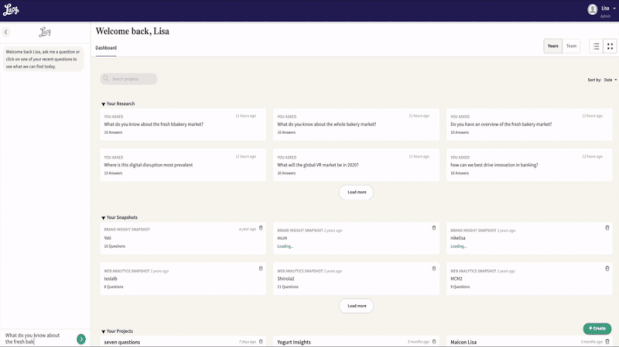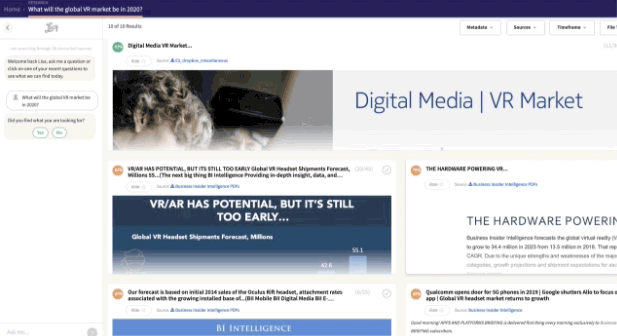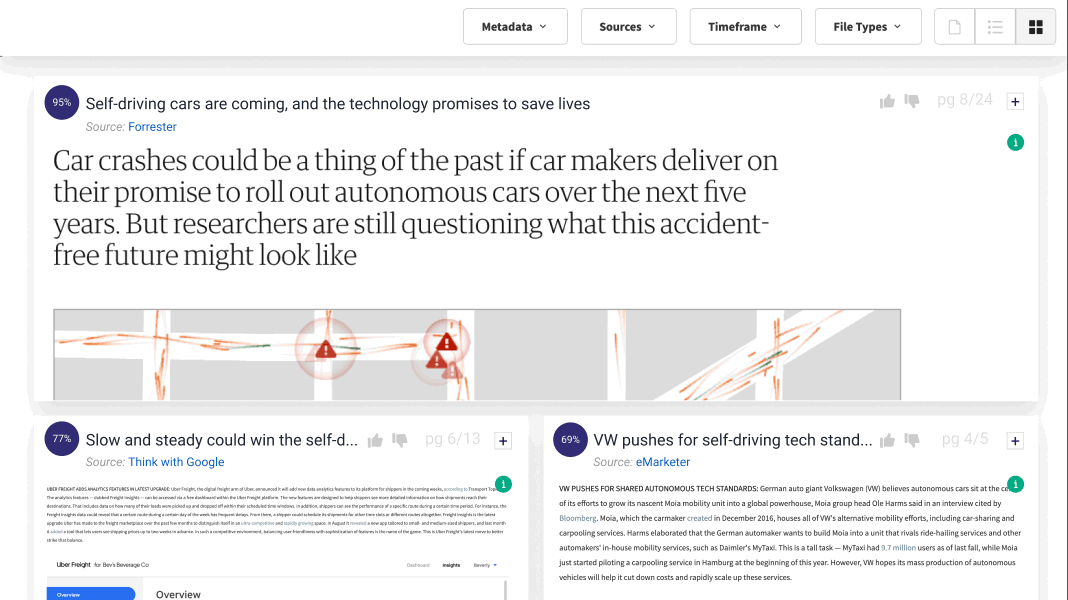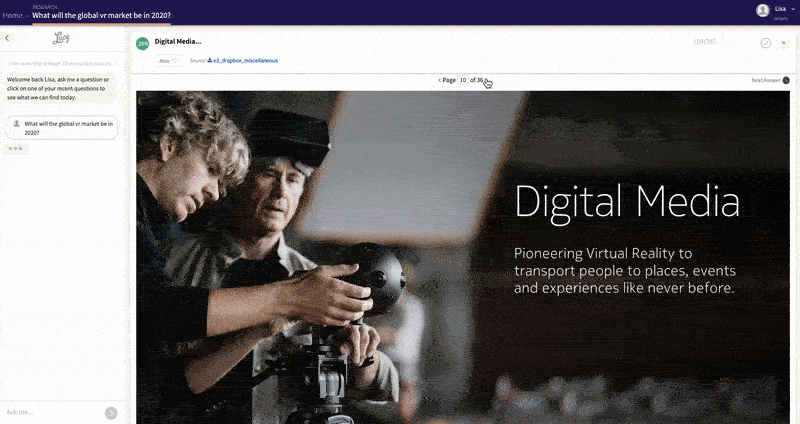Generative AI is blowing up. Since ChatGPT launched in December, there’s been explosive interest and developments in the space. Microsoft just announced a revamp of Bing with a more powerful version of OpenAI’s ChatGPT built in. Google unveiled Bard, its own competing conversational AI chatbot.
Given this recent momentum, it’s no surprise that the generative AI market, which accounted for $7.9 billion in 2021, is projected to reach $110.8 billion by 2030. Generative AI opens up a world of possibility. The growth of the AI also speaks to a larger guiding principle we’ve seen over decades of enterprise technology development: Users crave tools that make their lives easier and solve their biggest problems.
That is why we're excited to officially share a new feature we’ve been rolling out in the background: Lucy SynopsisSM. Lucy® now directly responds to users’ questions with a short summary of the best answers, equipping teams with the exact information they need in the moment to do their jobs and make better decisions faster.
How Synopsis Works
Lucy uses generative AI to read and synthesize the millions of data points that she finds across an organization’s knowledge ecosystem. She provides a unique two to three sentence summary response that directly and accurately answers users’ questions. Better yet, Lucy Synopsis is fully integrated with Microsoft Teams, Slack, and other business messaging platforms. Users can ask Lucy a question – what’s the annual leave policy? How can I fix this piece of equipment? Do we have a CPG case study? -- in a private chat or mention her in a group chat within the business messaging platform they’re already using daily to get an immediate and summarized answer to their question.
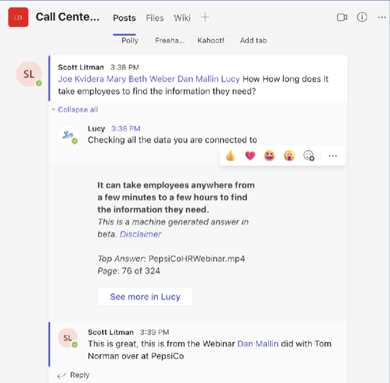
What Makes Lucy Stand Out
There are a few key things that differentiate Lucy and her approach to generative AI.
- She’s trained on enterprise data.
Lucy works on the data that a company owns or licenses – not data in the public domain. The recent generative AI momentum is focused on reimagining online search, but there’s a painful scavenger hunt for internal information that companies face every day.
Gartner estimates over 80% of enterprise data is unstructured, which makes it difficult for employees to find and use. Teams waste thousands of hours searching shared drives, scouring documents, distracting colleagues and re-creating resources that already exist. Lucy instantly, securely, and automatically finds what you’re looking for, no matter where it lives, and makes everyone more productive by bringing users the exact information and empowering summary of content they need when they need it. Lucy Synopsis takes the burden of finding information off the enterprise. She’s the first practical application of generative AI for knowledge management.
- She shines with integration.
Companies’ data lives in a myriad of places and shared drives – Microsoft Sharepoint, Salesforce, Google Drive, SAP, ServiceNow, Box, Tableau dashboards, third-party data feeds and subscriptions, and more. Lucy connects to and absorbs information from all these tools, pulls the best answers to your question, and then runs generative AI on those sources and files to give you a unique and direct summary response.
This integration aspect is important because as the generative AI race continues, each firm – Microsoft, Google, Salesforce, and others – will focus on making the AI as great as possible for their own products. Each of these products only make up a small slice of a companies’ data universe. The rapid innovation will leave a clear gap when it comes to leveraging the power of generative AI across a company’s entire ecosystem to surface the best answers and knowledge.
- She provides evidence for the answers.
Inaccurate answers provided by generative AI tools have made recent headlines. AI is self-learning and gets better and smarter over time. Al will make mistakes, but it will learn from those mistakes. The fact that an algorithm can occasionally miss the mark doesn’t negate the immense value that generative AI can provide to the enterprise.
The ability to see where a generative AI tool gets its answer from so you can verify it is key. This proof enables you to quickly validate the source and make sure the answer is what you need. If it’s not, you have the opportunity to tell the system so that it can improve. Every answer Lucy gives includes evidence of its source. She’s also programmed to summarize what she sees but not make up answers. If there’s not enough internal content to answer a question, she doesn’t come back with a best guess or incorrect assertion.
The rise of generative AI will be transformative for the enterprise. Learn more about how applying generative AI within a company’s internal network of information exponentially cuts down on wasted search time.

